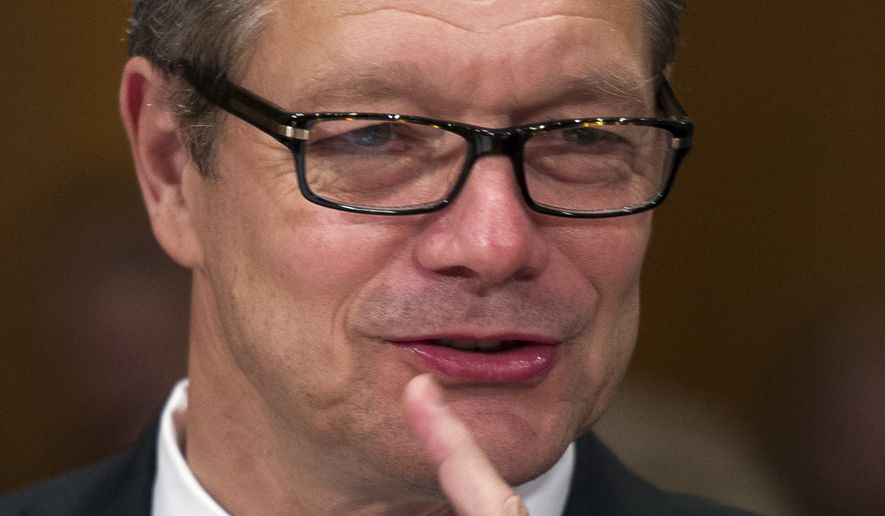The investigators who exposed big holes in the nation’s airport screening weren’t specialized, highly trained “red teams,” but rather were normal auditors, the inspector general who led the probe said Tuesday, undercutting Homeland Security’s explanation for how 96 percent of contraband got through in a recent test.
John Roth, the inspector general who oversees the Transportation Security Administration, also said he fears the agency’s leaders don’t have a good grasp of the terrorist threats that they face and the vulnerabilities they already have.
“Do they truly understand the nature of risks that they face? Candidly, I worry about that,” Mr. Roth told Sen. Ben Sasse, Nebraska Republican, during a hearing of the Homeland Security and Governmental Affairs Committee.
Mr. Roth is in the middle of an investigation into TSA screening, and reportedly found that officers failed 67 of the 70 field tests run to see if they could stop contraband weapons or simulated explosives snuck through their lines.
Homeland Security officials had downplayed the poor results, implying the inspector general’s investigators were trained in circumventing security, and so the field tests weren’t real-life conditions.
Mr. Roth, however, contradicted that explanation.
“The testers we used are auditors — these are members of the OIG workforce. They don’t have any specialized background or training in this kind of work,” the inspector general said.
Mr. Sasse, who has received a classified briefing on the situation, said Americans should be troubled by what they don’t know, and said Homeland Security officials were trying to spin the bad news rather than confront the serious problem they face.
“The administration has an obligation to responsibly declassify the inspector general’s investigation and to publicly release everything else it knows about TSA’s failures,” Mr. Sasse said.
Mr. Roth also said the TSA is still working to close what it described as a security gap that allowed 73 people to obtain federal approval to work in secure areas at airports despite having unspecified connections to terrorism.
“To the extent that there was a vulnerability, I believe it has been closed,” Mr. Roth said.
But Mr. Roth didn’t say whether those workers have been fired or whether their access to secure areas has been revoked. The workers would have been employed by airlines, airport authorities or airport vendors.
Mr. Roth said his investigators found that 73 job applicants for airport jobs had terrorism-related activity codes associated with their names in a government terrorism database maintained by the National Counterterrorism Center, part of the Office of the Director of National Intelligence. Mr. Roth said the TSA still does not have access to that information but asked for it last year.
“It’s a process that apparently is taking some time,” Mr. Roth told Sen. Joni Ernst, Iowa Republican. “So it isn’t quite there yet, but I think they’re moving quickly on it.”
Mr. Roth said TSA was provided the 73 names, and he believed the agency was “following up on each of those.”
The security gap was disclosed in a report Mr. Roth released last week. In an unclassified version of that report, TSA acknowledged that would-be employees whose backgrounds included some undisclosed terrorism-related category codes would be considered “a potential transportation security threat.”
TSA has been under fire from lawmakers since last week, when it was revealed that auditors from Mr. Roth’s office were able to sneak mock explosives, weapons and other prohibited items past security screeners at airport checkpoints.
In the wake of that disclosure, Homeland Security Secretary Jeh Johnson reassigned the acting TSA administrator, Melvin Carraway, to another job within the department. Acting Deputy Director Mark Hatfield was selected to lead the agency on an interim basis.
• This story is based in part on wire service dispatches.




Please read our comment policy before commenting.